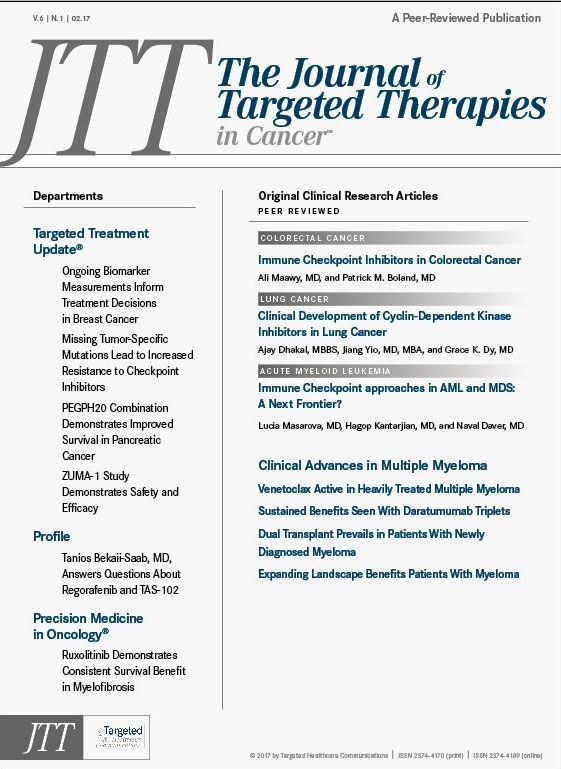Missing Tumor-Specific Mutations Lead to Increased Resistance to Checkpoint Inhibitors
Results of an initial study of tumors from patients with lung cancer or head and neck cancer suggest that acquired resistance to checkpoint inhibitors may be due to the elimination of certain genetic mutations needed to enable the immune system to recognize and attack malignant cells.
Victor E. Velculescu, MD, PhD
Results of an initial study of tumors from patients with lung cancer or head and neck cancer suggest that acquired resistance to checkpoint inhibitors may be due to the elimination of certain genetic mutations needed to enable the immune system to recognize and attack malignant cells.
To investigate why checkpoint inhibitors can stop working, Victor E. Velculescu, MD, PhD, and colleagues at the Bloomberg-Kimmel Institute for Cancer Immunotherapy at Johns Hopkins University studied tumors of 4 patients with nonsmall cell lung cancer and 1 patient with head and neck cancer who developed resistance to checkpoint inhibitorsnivolumab and ipilimumab.
“The mechanism by which most patients become resistant to these therapies has been a mystery,” Velculescu, who is professor of Oncology and program leader at the Bloomberg-Kimmel Institute, said in a statement. Clinical trials involving the agents have shown that nearly half of patients with lung cancers eventually develop resistance to this class of drugs for reasons that have been unclear, said the researchers.
Using biopsies of the patients’ tumors collected before the start of treatment and at the time patients developed resistance, the investigators performed large-scale genomic analyses to search for mutations specific to the cancer cells in all of each patient’s 20,000 genes.
The search focused on genes that code for the production of antigens, which serve as a source of identification to the immune system. Cancer cells may contain mutations in genes that code for antigens, producing misshapen or otherwise altered antigens that are known to scientists as neoantigens. Such neoantigens are foreign to the immune system and, thus, the cancer cell is flagged for destruction, usually with the help of immunotherapy drugs.
The scientists found that after the patients developed resistance to immunotherapy, all of their tumors had shed between 7 to 18 mutations in neoantigen-coding genes. By getting rid of those mutations, the tumor cells’ neoantigens look less foreign to the immune system and may go unrecognized, reported the investigators.
Their findings suggest that widening the breadth of neoantigen activity may mitigate the development of acquired resistance.
The researchers found that the tumors had lost these mutations by various means, including immune-mediated elimination of cancer cells containing these mutations, leaving behind cancer cells without the mutations, or by deleting large regions of their chromosomes in all cancer cells. To confirm that the missing mutations were important for generating an immune response, the investigators cultured a subset of the neoantigen protein fragments containing the tumor mutations with immune cells taken from 3 patients’ blood samples. Between 1 to 6 of the eliminated neoantigens were shown to generate a specific immune cell response in each of the patients.
“Our findings offer evidence about how cancer cells evolve during immunotherapy,” said Velculescu. “When the cancer cells shed these mutations, they discard the evidence that would normally lead them to be recognized by the body’s protective immune cells.”
The researchers say they plan to determine how broadly this phenomenon occurs in other cancer types and potentially use it to develop new ways to improve current cancer immunotherapies. For example, they say, the mutated neo- antigens present in tumor cells before therapy could give clues as to which patients’ tumors might develop resistance. The findings could also advance the development of new checkpoint inhibitors less likely to trigger resistance or personalized immunotherapy approaches.
Reference:
Anagnostou V, Smith KN, Forde PM, et al. Evolution of neoantigen landscape during immune checkpoint blockade in non-small cell lung cancer.Cancer Discov. 2016;pii: CD-16-0828. doi:10.1158/2159-8290.CD-16-0828.
